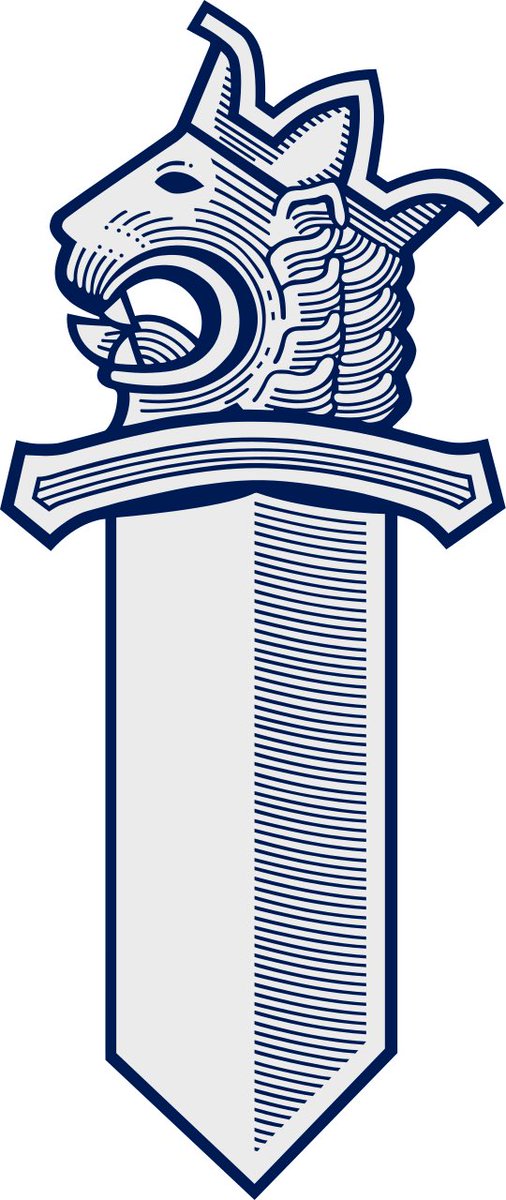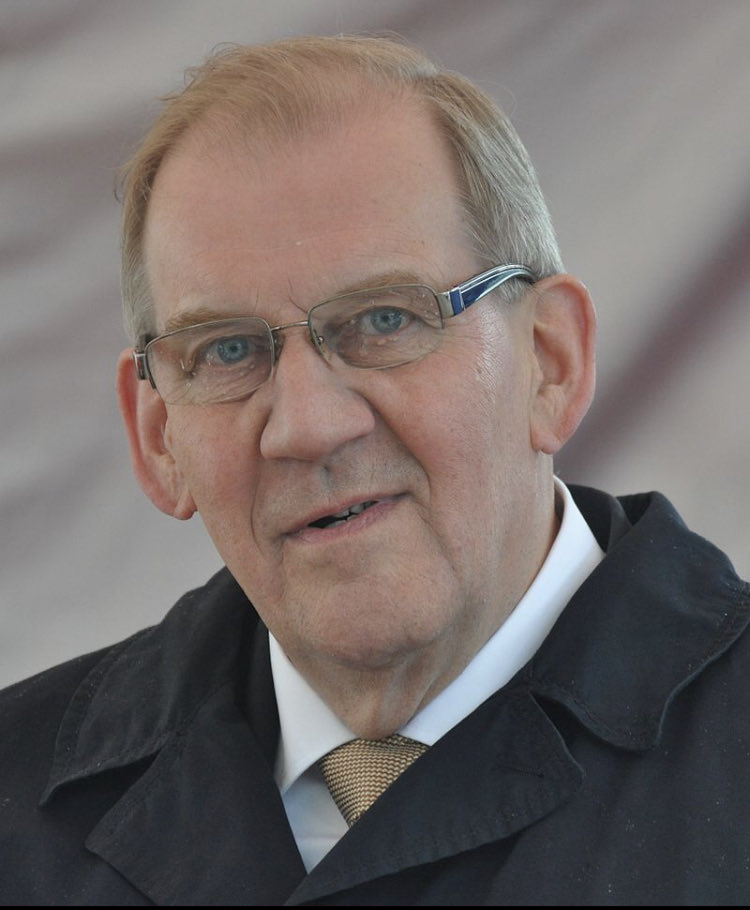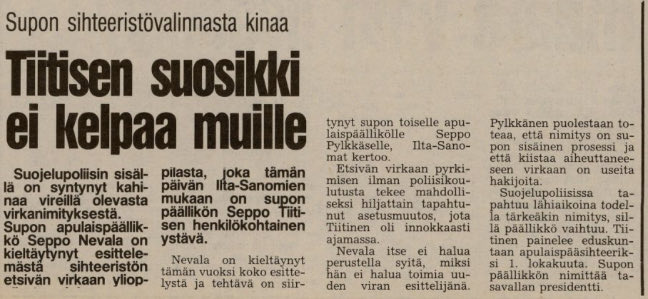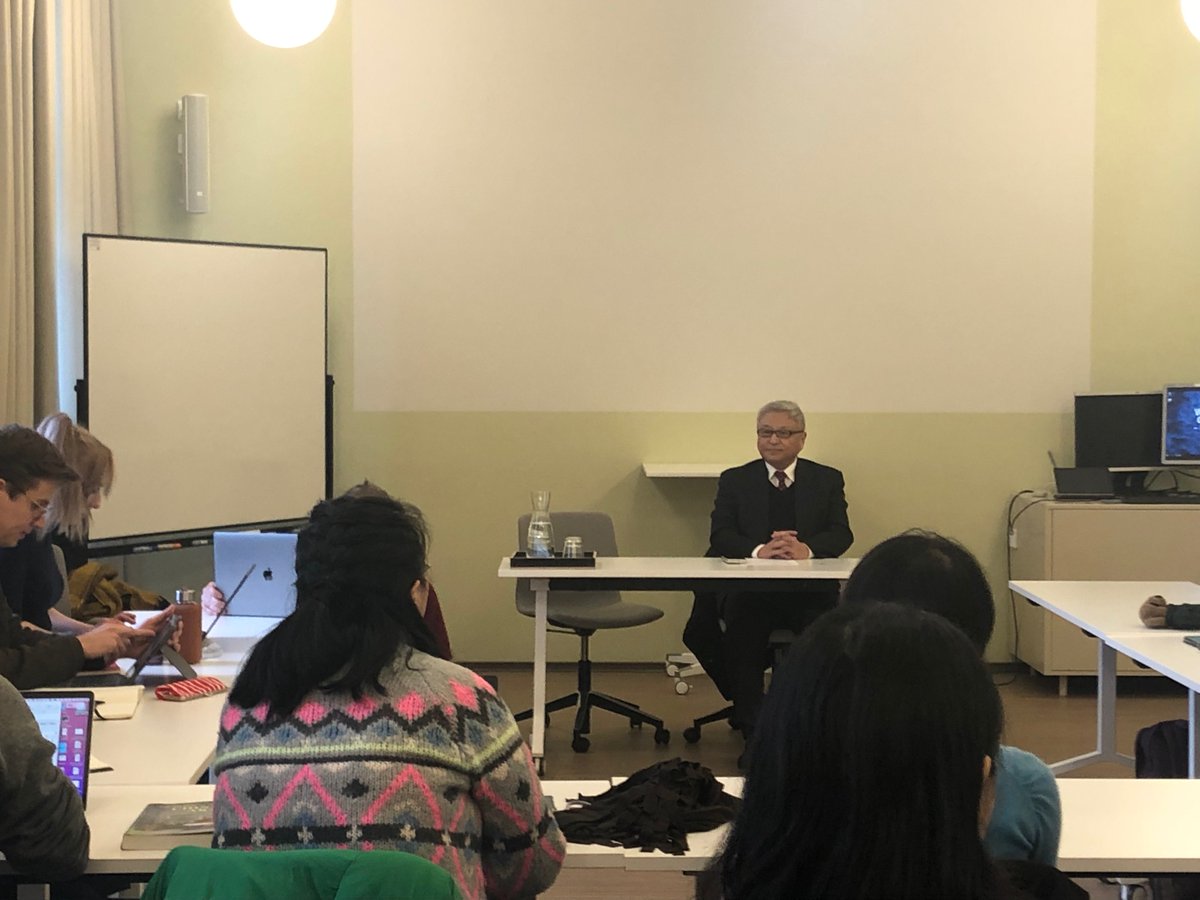1/ The head of @FIIA_fi, @MikaAaltola, warns that in the long run, #Russia will try to turn #Finland into a ”different and special” #NATO member, something between #Hungary and #Norway.
This is noteworthy as there is a cabinet formation process going on in Helsinki.
THREAD 👇
This is noteworthy as there is a cabinet formation process going on in Helsinki.
THREAD 👇
https://twitter.com/mikaaaltola/status/1659170059770638338
2/ In Hungary, Russia used three important tools to increase her influence, eventually enabling Orbán’s autocratization:
1) Demoralization in front of the totalitarian heritage (inadequate #lustration)
2) Corrupt networks of the ancien regime
3) Organized crime with Russian ties
1) Demoralization in front of the totalitarian heritage (inadequate #lustration)
2) Corrupt networks of the ancien regime
3) Organized crime with Russian ties

3/ While Finland was never a communist dictatorship, all the elements above were present in the country after the Cold War.
#Finlandization turned into #PostFinlandization, protecting local #KGB-connected elites. Staying outside #NATO made the problem even more dangerous.
#Finlandization turned into #PostFinlandization, protecting local #KGB-connected elites. Staying outside #NATO made the problem even more dangerous.

4/ …and yet, staying outside NATO was directly caused by the presence of these networks.
Unlike in Hungary and many other countries, there was no ”transitional opposition” nor national ”pro-Western consensus” in Finland.
So we kind of ”just went on”.
Unlike in Hungary and many other countries, there was no ”transitional opposition” nor national ”pro-Western consensus” in Finland.
So we kind of ”just went on”.

5/ The reason most Finns have not been aware of the extent of the #Kremlin influence and #corruption is not only that the issue has been a political taboo, but also the fact that on the lower level, Finnish life was fully #Nordic.
No one tries to bribe a police officer in 🇫🇮.
No one tries to bribe a police officer in 🇫🇮.

6/ Yet we are finally able to read from the press and brand new books about how corrupt elements within #Supo (the Security Police of Finland) had conspirative contacts with #Russia n oligarchs & their business partners, even facilitating #Putin’s friend’s citizenship process. 

7/ Most problems date back to the Cold War era and two men with a close KGB relationship: the President of Finland, Mauno Koivisto (1982-1994), and the head of Supo, Seppo Tiitinen (1978-1990).
They closed the archives. It is the main reason behind 30 years of stagnation in 🇫🇮.

They closed the archives. It is the main reason behind 30 years of stagnation in 🇫🇮.


8/ Many people hope the upcoming cabinet will finally reveal what has been hidden.
The first party, @kokoomus, officially supports the publication of the so-called Tiitinen’s list. The same applies to Kokoomus’ primary foreign policy negotiator, Elina Valtonen.
The first party, @kokoomus, officially supports the publication of the so-called Tiitinen’s list. The same applies to Kokoomus’ primary foreign policy negotiator, Elina Valtonen.

9/ What comes next will be a litmus test for the reliability of Finland as a NATO ally.
There are certainly some individuals with contrasting interests taking part in the negotiations.
But do they really want to reveal themselves?
We will see what happens.
There are certainly some individuals with contrasting interests taking part in the negotiations.
But do they really want to reveal themselves?
We will see what happens.

P.S.
For Finnish speakers (I hope there will be an English translation, too): the issues are largely covered in my new book, Autopsy of Post-Finlandization (Jälkisuomettumisen ruumiinavaus, 2023).
docendo.fi/sivu/tuote/jal…
For Finnish speakers (I hope there will be an English translation, too): the issues are largely covered in my new book, Autopsy of Post-Finlandization (Jälkisuomettumisen ruumiinavaus, 2023).
docendo.fi/sivu/tuote/jal…
@threadreaderapp unroll
• • •
Missing some Tweet in this thread? You can try to
force a refresh

 Read on Twitter
Read on Twitter










